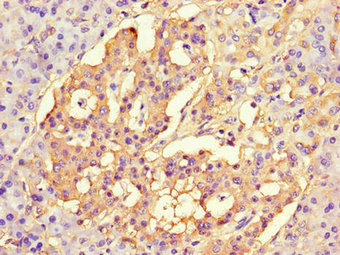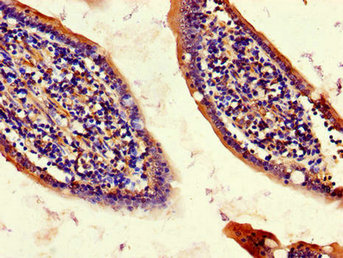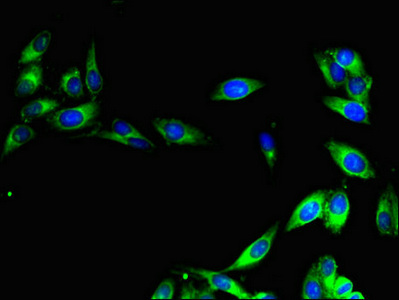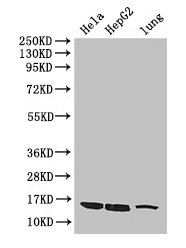Full Product Name
Rabbit anti-Homo sapiens (Human) CISD2 Polyclonal antibody
Alternative Names
1500009M05Rik antibody; 1500026J14Rik antibody; 1500031D15Rik antibody; AI848398 antibody; B630006A20Rik antibody; CDGSH iron sulfur domain 2 antibody; CDGSH iron-sulfur domain-containing protein 2 antibody; CDGSH type domain 2 antibody; CISD2 antibody; CISD2_HUMAN antibody; Endoplasmic reticulum intermembrane small protein antibody; ERIS antibody; Miner1 antibody; MitoNEET related 1 antibody; MitoNEET-related 1 protein antibody; NAF-1 antibody; Noxp70 antibody; Nutrient deprivation autophagy factor 1 antibody; Nutrient-deprivation autophagy factor-1 antibody; OTTHUMP00000219576 antibody; RGD1566242 antibody; WFS2 antibody; Zcd2 antibody; Zinc finger antibody; Zinc finger; CDGSH type domain 2 antibody
Species Reactivity
Human, Mouse
Immunogen
Recombinant Human CDGSH iron-sulfur domain-containing protein 2 protein (61-135AA)
Immunogen Species
Homo sapiens (Human)
Conjugate
Non-conjugated
The CISD2 Antibody (Product code: CSB-PA839803LA01HU) is Non-conjugated. For CISD2 Antibody with conjugates, please check the following table.
Available Conjugates
| Conjugate |
Product Code |
Product Name |
Application |
| HRP |
CSB-PA839803LB01HU |
CISD2 Antibody, HRP conjugated |
ELISA |
| FITC |
CSB-PA839803LC01HU |
CISD2 Antibody, FITC conjugated |
|
| Biotin |
CSB-PA839803LD01HU |
CISD2 Antibody, Biotin conjugated |
ELISA |
Purification Method
>95%, Protein G purified
Concentration
It differs from different batches. Please contact us to confirm it.
Buffer
Preservative: 0.03% Proclin 300
Constituents: 50% Glycerol, 0.01M PBS, PH 7.4
Tested Applications
ELISA, WB, IHC, IF
Recommended Dilution
| Application |
Recommended Dilution |
| WB |
1:2000-1:5000 |
| IHC |
1:20-1:200 |
| IF |
1:50-1:200 |
Storage
Upon receipt, store at -20°C or -80°C. Avoid repeated freeze.
Lead Time
Basically, we can dispatch the products out in 1-3 working days after receiving your orders. Delivery time maybe differs from different purchasing way or location, please kindly consult your local distributors for specific delivery time.
Usage
For Research Use Only. Not for use in diagnostic or therapeutic procedures.










